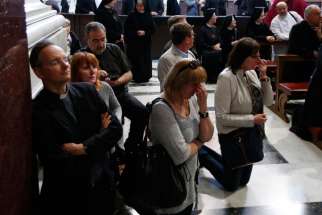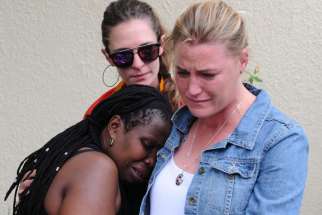God’s mercy allows us to repent
Fourth Sunday of Easter (Year A) May 11 (Acts 2:14a, 36b-41; Psalm 23; 1 Peter 2:20b-25; John 10:1-10)
Peter’s words rolled across the crowd like the voice of doom. They were thunderstruck at his message: somehow they had crucified the one whom God had designated as Lord and Messiah.
The divine will always involved pain, struggle
Third Sunday of Easter (Year A) May 4 (Acts 2:14, 22b-28; Psalm 16; 1 Peter 1:17-21; Luke 24:13-35)
There are two streams of history active in our world and they often work at cross-purposes. The first stream consists of human schemes and behaviour that are often the expression of desires, fears, jealousy and hatred. Even our best intentions are often fatally compromised by the presence of these tendencies. The world as we experience it is the unhappy result. The other stream is that of God’s will operating in history. It is relentless; even when temporarily diverted or blocked by human behaviour, it always triumphs in the end. God’s will is the redemption of all humanity and the transformation of the world.



